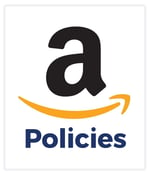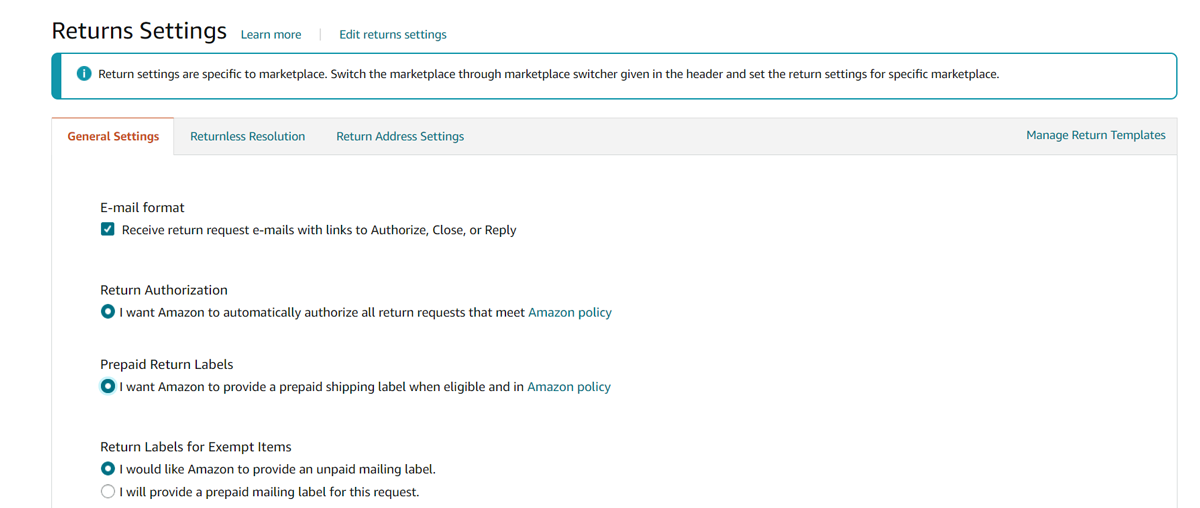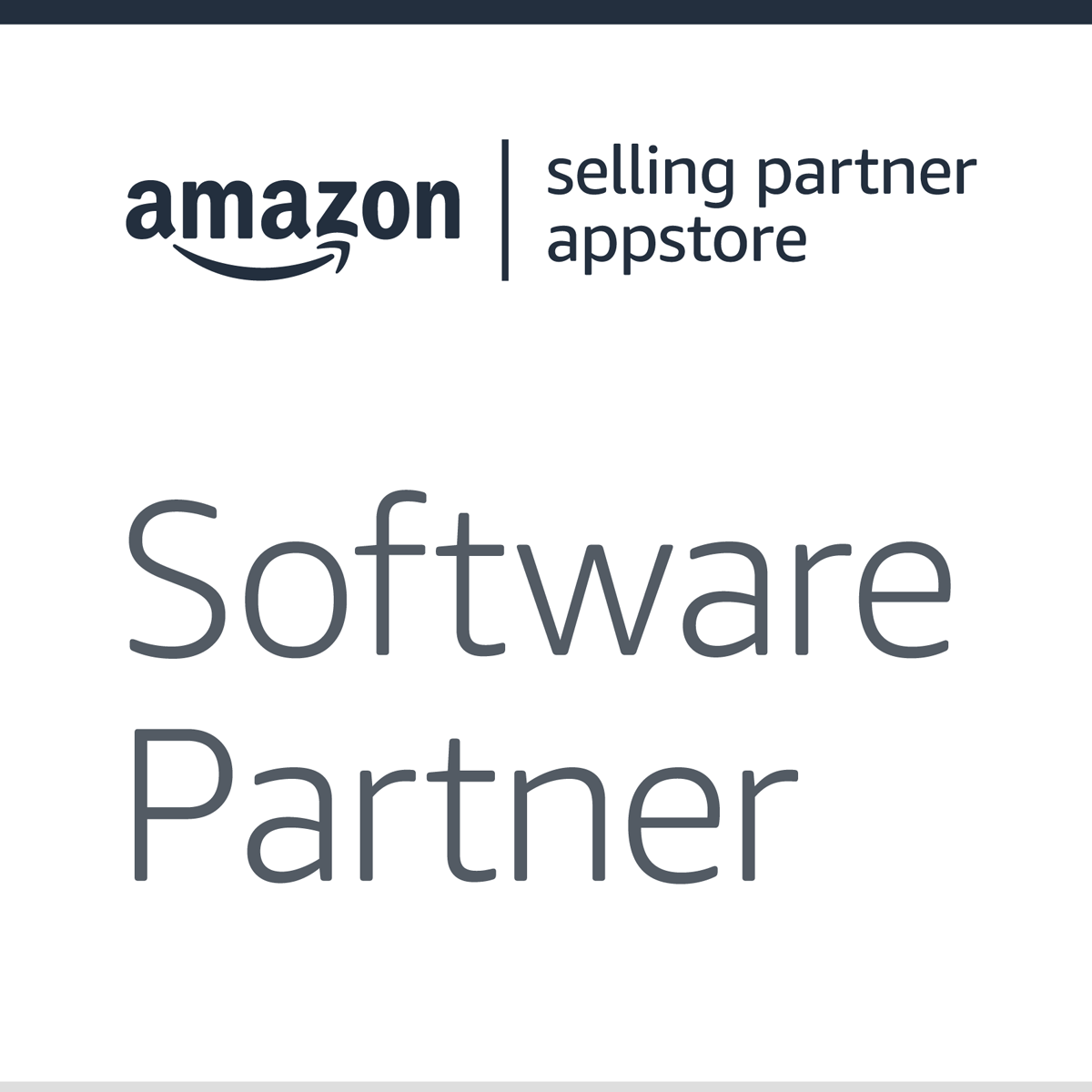Originally published on September 22, 2021, updated March 11, 2025
Menu
Join Our Email List
- Receive our monthly newsletter.
- Stay up to date on Amazon policies.
- Get tips to grow your business.
Editor's note: Amazon rolled out a returns processing fee for high return rate products in all categories and updated the FBA reimbursement window.
Customer returns are a natural part of running a business that sells physical products. This is particularly true for eCommerce businesses since buyers can't interact with the items before purchasing them.
With its continued commitment to providing a great experience for customers, Amazon makes it very easy for buyers to return products purchased on the marketplace. Programs such as Prime Wardrobe even encourage shoppers to order multiple apparel items and return what doesn’t work for them.
For Amazon sellers, returns can lead to some serious headaches. The product category, condition, value, and return eligibility all impact how and if a returned item can be resold. Returnless refunds have become more common, meaning you forfeit the ability to resell the item and reimburse the buyer. While this enhances the buyer's experience and in some cases may prevent the buyer from leaving a negative review for the product, it does require you to absorb a loss.
Amazon constantly refines its return policies and processes. Keep reading to learn about the current state of eCommerce returns as well as Amazon’s return policies for FBA, seller-fulfilled, and SFP items.
The National Retail Federation reports that online sales have a higher return rate than traditional brick-and-mortar sales. 17.6% of items purchased online are returned.
According to NRF survey data, these categories commonly experience online returns:
Now that you have a general idea of eCommerce return trends, let's dive into Amazon's specific policies.
Products shipped from Amazon.com (including Amazon Warehouse) may be returned within 30 days of the shipment being received. This applies in most cases, although some products might have different policies or requirements.
For example, eligible FBA baby items in new, unopened condition can be returned within 90 days of receipt. Amazon will cover the cost of return shipping. Eligible items shipping during November and December may be returned until the end of January.
Related Reading: How to Lower Your Amazon Return Rate
Regardless of the fulfillment model, sellers must comply with Amazon’s return policies. Return options can be customized on the Return Settings page in Seller Central. Return settings are specific to the marketplace, so you’ll need to set your preferred settings for each marketplace that you’re selling on.
As of February 15, 2023, custom and personalized products (those that are made to order or created with names, designs, or inscriptions) purchased on Amazon are no longer eligible for returns.
Related Reading: How to Analyze FBA Return Reasons and Improve Performance
As part of the FBA program, Amazon manages fulfillment and customer service, including customer returns, for FBA orders. The standard 30-day return policy and noted exceptions for Amazon customer returns apply to FBA returns. However, Amazon reserves the right to accept returns beyond the policy’s timeframe to ensure a positive customer experience.
 For FBA returns, Amazon may offer a refund or returnless refund to the customer. If the item is returned, it will be examined to see if it is sellable. If the item is deemed sellable, it will simply be returned to your FBA inventory. If the item appears to be defective or damaged in some way, Amazon will assess who caused the damage. If the item was damaged by Amazon, you may be eligible for reimbursement.
For FBA returns, Amazon may offer a refund or returnless refund to the customer. If the item is returned, it will be examined to see if it is sellable. If the item is deemed sellable, it will simply be returned to your FBA inventory. If the item appears to be defective or damaged in some way, Amazon will assess who caused the damage. If the item was damaged by Amazon, you may be eligible for reimbursement.
According to the FBA customer returns policy, here are reasons a returned item may be classified as unsellable:
You need to remove items categorized as Defective or Customer Damaged from your inventory within 30 days of arrival at the fulfillment center. You can change your Remove inventory settings to have Amazon automatically return or dispose of unsellable items.
July 2024 Update: Amazon will proactively reimburse you for FBA items lost in fulfillment centers starting November 1, 2024. You'll need to file a manual claim if you don't receive an automatic reimbursement and think your inventory was lost or damaged.
Amazon is updating the manual claims eligibility window on October 23, 2024. Claims for items lost or damaged in the fulfillment center need to be submitted within 60 days of the item being reported lost or damaged. FBA customer returns claims must be submitted 60-120 days after the refund or replacement date. Removal claims for items lost in transit should be submitted 15-75 days from the date of shipment creation. All other FBA removal claims must be filed within 60 days of the shipment being delivered to you.
Amazon can also issue replacements for customers who return FBA items. A new item will be shipped to the customer from your inventory free of charge. You won’t be charged fees or receive payment for a replacement order, and your payment/fees from the original item’s sale will be unaffected.
The item that is being replaced must be returned by the customer, and a replacement can only be requested if you have the item in stock at FBA.
Amazon refunds FBA orders by debiting your seller account for all or part of the refund value. You’ll receive an account credit for all or part of the Selling on Amazon referral fee as well as the variable closing fee for a returned item where applicable. Amazon doesn’t reimburse you for applicable FBA fees.
The customer may be charged a restocking fee if the returned item has been opened. Your account will be credited for that amount. You won’t receive a restocking fee credit if Amazon takes responsibility for the returned item’s condition and gives you a reimbursement. If you sell in the apparel and shoes categories, a returns processing fee applies.
Orders that are fulfilled and shipped from your own inventory (whether you use Seller-Fulfilled Prime, fulfill your own orders, or use a 3PL) will be returned to you instead of Amazon. Amazon will authorize US returns that fall within the standard Amazon Return Policy through the Prepaid Return Label (PRL) program. All US sellers are enrolled in this program, which is explained below.
 If you receive a return for manual review, you are required to match or exceed Amazon’s return policies when processing returns. You decide whether to approve or close out of policy return requests. This includes requests sent after the return timeframe has ended, items that are ineligible for return, and items with issues related to a manufacturer warranty.
If you receive a return for manual review, you are required to match or exceed Amazon’s return policies when processing returns. You decide whether to approve or close out of policy return requests. This includes requests sent after the return timeframe has ended, items that are ineligible for return, and items with issues related to a manufacturer warranty.
If you choose to close an out-of-policy request, Amazon recommends explaining to the buyer. The buyer might file an A-to-z Guarantee claim if you close the request or issue a partial refund. (There are two main reasons buyers can file A-to-z claims: they didn't receive the item or the product didn't meet their expectations.)
As of January 14, 2023, sellers are responsible for any carrier shipping correction charges on customer returns of seller-fulfilled orders caused by incorrect return label information, a cost that Amazon previously absorbed.
Carriers may issue shipping correction charges after a shipping label has been purchased. It could be the result of incorrect weight or dimensions or when your return address is invalid. These charges can bring forth a positive or negative credit depending on whether you over or under paid.
To prevent these extra charges, make sure your products’ dimensions, weight, and return address are correctly displayed in Seller Central.
Amazon recommends responding to return requests within 24 hours. After receiving a return, you are expected to process the buyer's refund within two business days. To receive returns, you must provide a return address in the US, a prepaid return label, or offer a full refund without asking that the item be returned. If you don’t offer at least one of these options, the buyer may file an A-to-z claim.
As of June 2023, sellers can assess the condition of returned items. To do so, simply navigate to the Charge restocking fee page and choose an appropriate description from the drop-down menu provided. Strengthen your case by uploading a photo of the item and sharing additional details in the comments box.
For international sellers without a return address in the US, enrolling in Amazon’s Returns Provider program allows you to use the domestic warehouse address of one of its trusted service providers to meet this requirement.
In the Amazon Return Policy, buyers are asked to insure shipments valued at $100 or more for the value of the merchandise and to ship the return with a signature shipping service. If the item is valued at over $35, the buyer should return it to you with a trackable shipping service. Amazon recommends USPS delivery confirmation service for return items valued below $35.
2024 Update: Seller-fulfilled prepaid returns for large and heavy items are available through UPS. This applies to items that are between 90-150 lbs, exceed 96 inches in length, or exceed 130 inches in total length plus girth (length plus 2 x width + 2 x height).
In November 2021, Amazon launched the Returns Performance dashboard to help sellers who manually manage returns proactively address issues and better monitor their returns performance.
The dashboard provides information on three key performance metrics: return requests approved in more than 24 hours, return requests declined, and return-related buyer contact rate.
For each of these metrics, you’ll see your current performance compared to Amazon’s target threshold as well as a definition of the metric, an explanation of its importance, and related policy details. You can view a summary of your returns performance metrics on the Manage Returns page.
Coinciding with the dashboard's release, the marketplace also introduced the Return Analysis page where you can identify and take action on any product listings that experience return problems.
SellerPulse by eComEngine includes an FBA returns report that makes it easy to gain insights from your returns over the past 90 days. View returns by product, reason, and disposition along with customer comments. Filter by category or brand to get a more detailed look at your business. You can also get a weekly email with details about recent returns.

The Amazon PRL program was created to streamline the return process for buyers and sellers who fulfill their own orders.
With this program, in-policy return requests are automatically approved by Amazon for US sellers. The buyer receives an email with the Return Merchandise Authorization (RMA) number generated by Amazon as well as the return shipping label on your behalf through Buy Shipping Services. You’ll still need to issue refunds (if appropriate) after you receive the returned item.
You will only receive return requests for manual review if they are outside of Amazon’s policy or exempt from the prepaid return label requirement. If that’s the case, Amazon will send you an email with links to authorize, close, or reply to the return request.
The PRL program lets you set default rules for return request authorization. For example, you can extend the default return window if it is within Amazon policy.
It’s important to be aware that you are required to issue a refund within two business days of receiving a returned item. If you fail to take action with the refund, Amazon may provide the refund on your behalf and charge the amount to your seller account.
You can change your return address and other settings on the Returns Settings page in Seller Central. You’ll need to include a US domestic address for the returns to be sent to. Also make sure you maintain accurate weight and size information for each product you sell, as return shipping costs are based on these details.

Amazon will charge your seller account for the return shipping cost after the buyer ships the product. Shipping is provided by UPS or USPS through Buy Shipping Services. If you’d like to use multiple return addresses, you can configure a rule or specify which SKUs should go to different addresses.
Prepaid returns are included in your Settlement and Payments report as well as the Returns report. With the Returns report, you can download a report of every return request you’ve received, in addition to the status of each return and other details.
You won’t need to request exemptions for categories and subcategories that are automatically exempt from prepaid returns. These include:
You may only request exemptions from prepaid return labels for items valued at over $100 that need special shipping. Amazon will automatically authorize seller returns for SKUs that are exempt from the PRL program. You can decide whether to have Amazon generate an unpaid return label or if you prefer to upload your own custom prepaid return label through Return Settings.
If Amazon authorizes a return or refund on your behalf that you don’t think should have been authorized, you can file an appeal. For a customer-returned damaged item, you’ll need to provide photographic evidence linking the return to the purchased item when you create your claim. Attach all necessary supporting documentation, including images of the shipping label, Tracking ID, delivery proof, or any additional information necessary for reviewing your claim.
If an item is damaged or lost in transit, you will need to process a full refund for the customer and file a claim directly with the carrier.
Customers have the option to ask for a free replacement for all damaged, defective, or materially different seller-fulfilled returns eligible under the PRL program. This choice is only provided if the original item (in the same condition and quantity) is in-stock in your Seller Central account when the return is requested.
Amazon creates a zero value replacement order and provides an Amazon prepaid return label for the original item to be returned to you. The customer will have seven days to drop off the original item to be shipped to you. Amazon notifies you to send the replacement order after confirming that the customer has shipped the original item.
You can issue a refund or replacement and let the customer keep the product with a returnless resolution. It's up to you to decide whether or not you want to automatically issue a returnless refund/replacement — simply set your rules in Seller Central.
You may also choose to work with the buyer for a specific return by communicating through Buyer-Seller Messaging. As outlined in the Amazon Communication Guidelines, you should only communicate with a buyer about a return if you need additional information to complete the return or if you are providing a partial refund.
If the original item is used or damaged by the buyer, or materially different from what you sent to the customer, you can file for a reimbursement.
 If you fulfill orders with Seller-Fulfilled Prime, note that Prime items have auto-authorization for returns initiated during the standard return window for each item as outlined in the Amazon.com Return Policy. Amazon Customer Service may make occasional exceptions, such as accepting returns past the stated time frames.
If you fulfill orders with Seller-Fulfilled Prime, note that Prime items have auto-authorization for returns initiated during the standard return window for each item as outlined in the Amazon.com Return Policy. Amazon Customer Service may make occasional exceptions, such as accepting returns past the stated time frames.
No matter how you fulfill orders, your goal is to ensure that buyers have a positive experience with you and your products. Returnless refunds and related automation efforts take a lot of the work out of the returns process, making it easier for you to focus on other important tasks. However, if you receive a return request that needs your attention, be sure to respond in a timely manner to keep your Amazon account in good standing.
You might also find it helpful to keep track of the refund rate for each of your products. You can quickly see the number of refunded orders for each of your ASINs and other details on the Orders Overview page in FeedbackFive.
Originally published on September 22, 2021, updated March 11, 2025
This post is accurate as of the date of publication. Some features and information may have changed due to product updates or Amazon policy changes.
These Stories on Amazon
14321 Winter Breeze Drive
Suite 121 Midlothian, VA 23113
Call us: 800-757-6840





Copyright© 2007-2025 eComEngine, LLC. All Rights Reserved. eComEngine®, FeedbackFive®, RestockPro®, and SellerPulse® are trademarks or registered trademarks of eComEngine, LLC. Amazon's trademark is used under license from Amazon.com, Inc. or its affiliates.
No Comments Yet
Let us know what you think